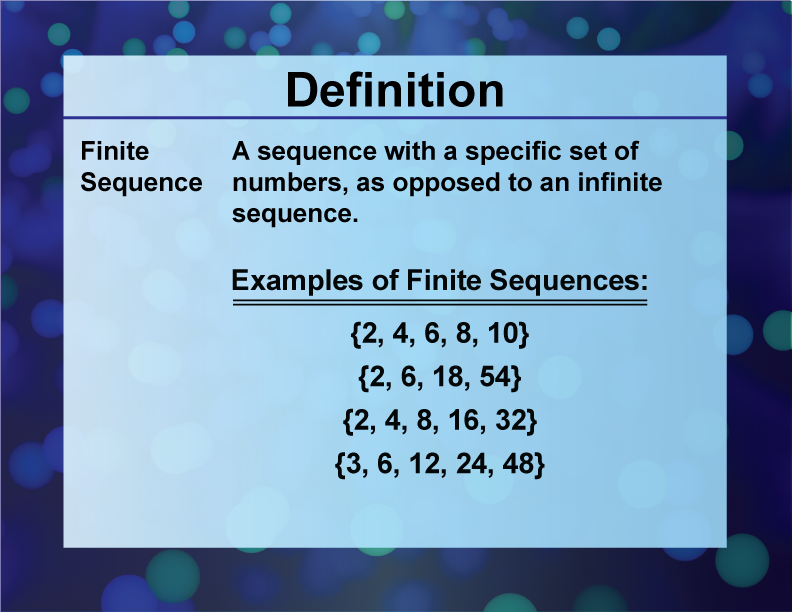
Display Title
Definition--Sequences and Series Concepts--Finite Sequence
Display Title
Finite Sequence

Topic
Sequences and Series
Definition
A finite sequence is a sequence that has a limited number of terms.
Description
A finite sequence is a sequence with a specific number of terms, making it a crucial concept in the study of sequences and series. This concept is fundamental in various mathematical applications where the number of elements is limited, such as in statistics and computer science.
In real-world applications, finite sequences are used in data analysis, where datasets have a specific number of entries. They are also used in computer algorithms that process a fixed number of elements. Algebraically, a finite sequence can be represented as
a1, a2, a3,…,an
where n is the number of terms.
Understanding finite sequences is essential for math education as it helps students develop skills in recognizing and analyzing patterns within a limited context. It lays the groundwork for more complex topics in algebra and calculus, and aids in developing problem-solving skills.
For a complete collection of terms related to sequences and series click on this link: Sequences and Series Collection
| Common Core Standards | CCSS.MATH.CONTENT.6.SP.B.4, CCSS.MATH.CONTENT.HSF.IF.A.3, CCSS.MATH.CONTENT.HSF.BF.A.2, CCSS.Math.CONTENT.HSF.LE.A.2 |
|---|---|
| Grade Range | 6 - 9 |
| Curriculum Nodes |
Algebra • Sequences and Series • Sequences |
| Copyright Year | 2021 |
| Keywords | data analysis, arithmetic sequence, common difference, definitions, glossary terms, geometric sequence, common ratio |